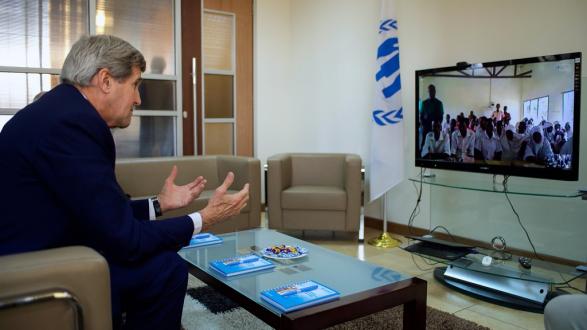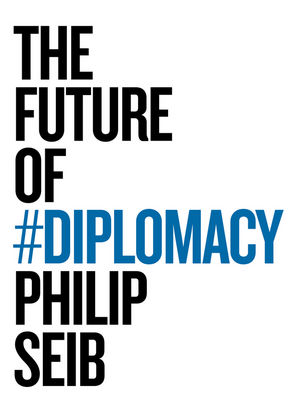In:
The following is an excerpt from The Future of Diplomacy, by Philip Seib (Polity, 2016).
____________________
For centuries, diplomacy was the domain of an insular elite. The protagonists worked quietly, often secretly, until ready to unveil their accomplishments or lack thereof. Diplomats were comfortable in this closed environment, speaking just to one another and paying little heed to those publics whose future might be shaped by their work. British diplomat Harold Nicolson, in his 1939 book Diplomacy, wrote, "In the days of the old diplomacy it would have been regarded as an act of unthinkable vulgarity to appeal to the common people upon any issue of international policy." He lamented "the invention of the wireless," which gave "a vast impetus to propaganda as a method of policy" and allowed manipulators such as Adolf Hitler to wield "a formidable weapon of popular excitation" that could obstruct or even supersede the work of diplomats.
Today Nicolson’s "unthinkable vulgarity" has become integral to diplomacy, and it would be an act of unthinkable stupidity to disregard the "common people" (now more felicitously referred to as "the public") when conducting international relations. The "wireless" of Nicolson’s time has evolved into devices that individuals carry in their pockets and consult almost constantly to peruse a vast array of venues ranging from satellite television channels to social media properties such as Twitter and Facebook. For a member of the public to intrude into the diplomatic process requires only a tap on an app.
In this new information era, people gather information from diverse sources, disseminate their own views, and participate in nonstop virtual conversation. The governmental gatekeepers who controlled access to information and shaped much of its content have been nudged aside by the individual seeking out and disseminating "news" as she or he defines it.
Hunger for information has political ramifications, as does the ability of "citizen journalists" with their own agendas to reach large audiences in real time. Diplomats feel the reverberations from this process, and although diplomacy may have been an elitist enterprise for many centuries, it has now, for good or ill, been democratized in the sense that people (at least in democratic societies) can know more about diplomatic activity and can make their voices heard. This is largely the result of media-based empowerment of the public. Diplomats know that speculation as well as solid information about their work will appear quickly and ubiquitously. Nothing can be done about that, and so the art of the rapid response has become part of the diplomatic repertoire.
The new media tools that are changing journalism also reduce the insularity of diplomacy.
The "popular excitation" that concerned Nicolson can now happen in minutes, as a YouTube video ricochets through online networks and leaps across political boundaries. Diplomats often find themselves compelled to move at a similar pace, responding to the crisis of the moment with little or no time to corroborate information or to reflect on consequences of rapid action. Traditionalists who believe that fast diplomacy is almost always bad diplomacy face a disconcerting reality. They must adapt to a strange and inhospitable new world in which the interests of diverse publics must be addressed quickly, and deciding what to say may therefore take precedence over deciding what to do.
The future of diplomacy is inextricably tied to the future of media. Much more than speed is involved. The popularization of personal media tools – primarily the mobile phone and including tablets, laptops, and similar devices – empowers individuals in unprecedented ways. People no longer need to rely on traditional news providers, which can be influenced if not controlled by governments. Instead, all those with access to the internet can independently find information about the topics that most interest them on social media venues such as Twitter or through specialized online news services, many existing solely to advance partisan viewpoints. Even more important, members of the public can supplant the traditional relationship between news media and audience by disseminating information through their own networks. In this new media world, everyone can be a journalist of sorts.
The new media tools that are changing journalism also reduce the insularity of diplomacy. People expect a river of information, not a trickle, and they expect governments and other societal institutions to contribute to that flow. This requires new levels of transparency in government, including on the part of those who conduct diplomacy, and a commitment by governments to reach out to their own and other publics.
____________________
Philip Seib is Professor of Journalism and Public Diplomacy and Professor of International Relations at the University of Southern California. He served as director of USC’s Center on Public Diplomacy from 2009-2013. He is the author of the book The Future of Diplomacy: find it here.
In the photo, U.S. Secretary of State John Kerry speaks with students at the Dadaab Refugee Camp - largely inhabited by displaced Somalis - via video conference on May 4, 2015.
The views and opinions expressed here are those of the author and do not necessarily reflect the official policy or position of the Pacific Council.




